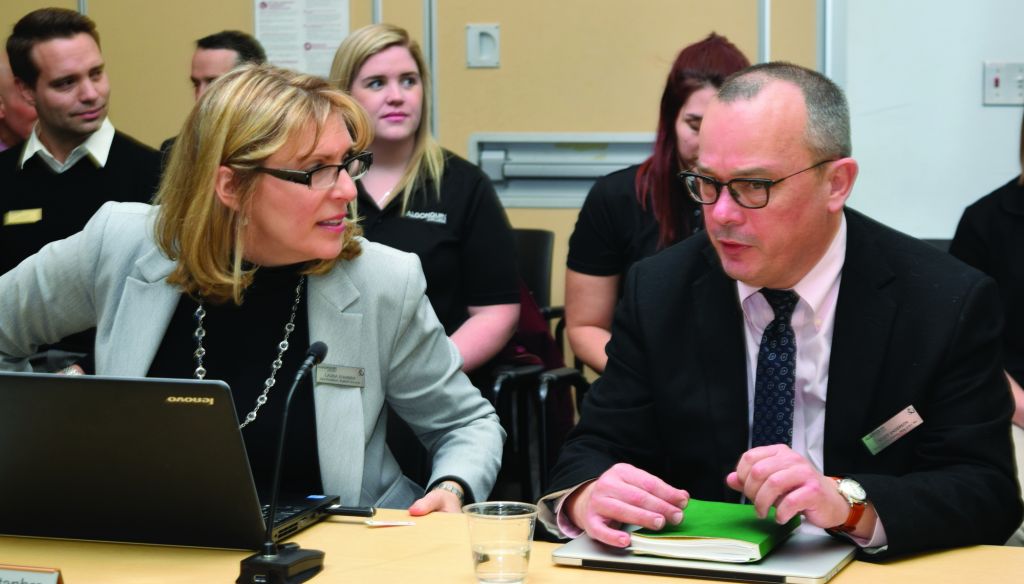Students who are returning in the fall can expect to pay about $265 more in annual tuition and fees next year, after the Board of Governors approved the $355.6 million 2017-18 budget on Feb. 13.
Tuition will increase by three per cent for most regular programs, which is equal to about $86 based on this year’s average annual tuition of $2,851.44, registrar Krista Pearson said.
On top of that, Algonquin’s compulsory ancillary fees will continue to be the highest in the province, with a 12.69 per cent hike, or $179.38, to a total of $1,593 in fees per year for full-time students.
The Students’ Association charges nearly three-quarters of the ancillary fees and their board already approved the increase.The college collects the fees for the SA and transfers the funds to it.
Duane McNair, vice-president of finance, said the tuition increases were needed to balance the budget.
“What necessitates the increases is our (government) grant funding per student is… declining,” he told the Times. “We need to address inflation, so unfortunately the only lever that we have is through the fees (and tuition).”
As a result of cuts to government funding, McNair estimated the college will receive about $6.5 million less in 2017-18.
In a presentation to the board, college registrar Krista Pearson said they have no data on whether the college loses students when they hike rates.
“Our standard tuition rate… still remains market competitive,” she said. “Having said that, I think we know finances are always a concern for students.”
She said the college tries to ensure the money is spent efficiently on the services students get in return.
All of the more than 170 full-time programs at the college will see increases in tuition, except three. Project management and sport business management have annual tuition of $6,246 and $11,090, respectively, which the college considers to be quite high already.
The third program, advanced care paramedic, has the highest tuition in the province at nearly $17,000 per year.
Under provincial regulations colleges cannot have an operating deficit and are generally expected to have a surplus. This year the surplus is projected to be about $5.6 million, which will be held in reserves.
The college already sits on about $60 million in cash reserves, $19.7 million of which will be put toward this year’s $54.2 million capital investment wish list. Capital spending is higher than usual this year due to the $34.1 million bill for C-building renovations and the construction of a new building.
As well, the board put to rest, at least for now, the controversial executive compensation program.
That drew criticism in January after the board put forward a pay increase proposal for some college executives, with maximum potential raises of over 50 per cent. The plan was quickly revised to maximum raises of about 38 per cent.
The board voted to put the proposal on hold pending recommendations from the College Employer Council.
At the beginning of the board of governors meeting, Gov. Michael Tremblay unexpectedly said he would soon resign due to a conflict of interest.
Tremblay, who currently is an executive at Microsoft Canada, was recently hired as CEO of Invest Ottawa. Because college president Cheryl Jensen is a member of the organization’s board, it was a “pretty big” conflict, he told the board.
Tremblay’s resignation is effective in March and he said an official resignation letter is coming.
Correction: A previous version of this story incorrectly stated the college’s cash reserves. In fact, the correct figure is about $60 million


